Harrogate residents have been sharing their wartime memories as the country prepares to mark the 75th anniversary of VE Day.
One lady, who was 15 at the time of the VE Day celebrations in Harrogate, recalled how there was a huge street party in Albert Road, where she lived.
She said: “Every single house on the street had a Union Jack flag either hanging from the bedroom window or from a post in the garden. It looked lovely.”
She described how trestle tables were laid out from one end of the street to the other, while the road and footpath were left for dancing. A loud speaker played records by Vera Lynn and other famous singers, and the tables “bulged with food” such as jellies, trifles, sandwiches and pies.
She said: “I don’t know where all the food came from; it was like magic. We hadn’t seen so much food for months! There were bananas, and one or two children didn’t know what to do with them; they didn’t know whether to eat the whole lot or to peel it!”
Aged 16 on VE Day, a gentleman described a street party on Mayfield Terrace, where residents of each house brought food and joined in. He added: “This lockdown now feels like it’s bringing the war time back again. Everything was rationed then and you couldn’t get much to eat.”
Another Harrogate resident, who was brought up in London and spent much of the war in bomb shelters, described how she would pick up shrapnel as she walked to school. However, she added: “I always felt perfectly safe. It was very strange, really.”
Aged 17 on VE Day, she said she would be marking the 75th anniversary with her neighbour while observing social distancing rules.
She said: “My neighbour has said we are going out in the front to do a bit of celebrating. I said I would be quite happy to do that. I can sit on the porch – and I’m sure there will be a glass of wine somewhere!”
The stories have been collated by Harrogate home care provider Continued Care, based on memories told to them by some of their elderly service users.
Continued Care’s director Samantha Harrison said: “Some of the people we look after were young men and women when VE Day was announced on May 8, 1945, and they’ve been telling our carers lots of wonderful stories about that time.
“For those of us who did not live through the Second World War and for whom VE Day is a moment in history, it’s easy to forget that it is still very real for the older generation. It’s a privilege to hear them recall their memories in such vivid detail, and we are proud to be caring for them today.”
Mrs RC, aged 15, in Harrogate on VE Day
There were street parties, soldiers were coming home, crowds were out in the street. I don’t think anyone went to bed before one or two o’clock in the morning from celebrating.
I went to the pictures to watch it all with a friend, and then we had a drink of fruit juice. I was too young to drink beer. The film showed the Princesses in London mingling in the crowds. They wanted to go out and the King let them go, but they didn’t wear their uniform. So nobody noticed them as they were wearing ordinary clothes. The King and Queen were on the balcony waving. They were there for ages before the people would let them go into the palace again.
People were climbing lamp posts and all sorts to celebrate. There was dancing – jiving – a long stream of people getting longer and longer all down The Mall. The crowds were so enormous that you wouldn’t have been able to get a car through.
We didn’t go to work the following day – we were told to have the day off. We had a street party in Albert Road. Every single house on the street had a Union Jack flag either hanging from the bedroom window or from a post in the garden. It looked lovely. My mum and I went but my gran and grandad didn’t go as they were elderly. There used to be American soldiers but they weren’t at our street party. I imagine they would have been celebrating in their own barracks. There were one or two English soldiers there but I don’t know how, when soldiers were still finishing off in Germany.
I don’t know where all the food came from! It was like magic. People had been storing up a bit of food for VE Day. It was amazing; we hadn’t seen so much food for months! There were bananas. I don’t know where they came from – you didn’t see much fruit coming from abroad – but someone had managed to get bananas. One or two children didn’t know what to do with them; they didn’t know whether to eat the whole lot or to peel it! The mums soon showed them.
There was dancing in the street, and a loud speaker. They played records, famous singers like Vera Lynn. The trestle tables went from one end of the street to the other and down the second half of the street. The road and footpath were left for dancing. No waltzing as that was too timid for the day – they were doing the jitter bug, jiving and everything. Some of the mums got up and did a bit, even my mum. My friend and I laughed because her mum and my mum were dancing and trying to do the jitter bug, but they started laughing.
There was some beer for the adults and the children had fruit juice. There were jellies, trifles, sandwiches, pies. The table bulged with food, which soon disappeared. When we were on ration we could only get so much, so this was, of course, a luxury for everyone to eat what they wanted. By the time it came to midnight all the food had gone. Every scrap of it, gone. The next day I said to my mum: “They won’t be eating much today.” She said: “They will. The men will want their breakfast before they go to work.”
When we went back to work it felt a bit flat. The Union Jacks stayed up for a while, though, and they showed the film reel of VE Day for quite some time in the cinema.
Of course, it wasn’t the end for those stuck in Japan – that wasn’t over until sometime later – and when the end of the war in Japan was announced it wasn’t celebrated like VE Day. A neighbour waited for her husband to return from Japan and he was a shadow of himself. He was 6ft tall and just skin and bones.
Mr ST, aged 16, in Harrogate on VE Day
My wife and I weren’t married at the time of the VE Day celebrations, so she was with her family and I was with mine. My family lived on Mayfield Terrace, and the whole street had a party. Everybody came out and brought something to the party.
This lockdown now feels like it’s bringing the war time back again. Everything was rationed then and you couldn’t get much to eat.
Mrs JB, aged 17, in Chichester on VE Day
All sorts of memories come back when you think about VE Day.
I was actually in college because I was training to be a teacher. We didn’t have mobile phones in those days so I think my father managed to ring the college to tell me what had happened. The news went round my friends so that evening we went out in the town. We didn’t drink – we didn’t have any drink at all as students.
The other students and I were just walking around the town as we rarely went into the town and we hardly had any money. I was lucky to have 5s a week from my father, and I knew people who didn’t get any pocket money. We didn’t know anybody in the town, so we just came back to the college again. A very odd time. We couldn’t see anything that was happening in London – there was no television. But you could go to the cinema later on and there would be a film of it.
I spent quite a bit of the war in the shelters – I can remember sleeping in them. We lived in Merton near to Wimbledon Tennis Courts. My father had made a marvellous place for us to sleep, where we had to go down three steps. I had a sister two years younger and one who was ten years younger. We used to hear the bombs a lot. In the morning when we went to school we would be picking up shrapnel.
When we were in the shelter one night there was a tremendous bang and the whole shelter rocked. My father leapt out of his bunk and said: “My god, the house.” When he got up there it was actually OK and the bomb had landed about 200 yards up the road. Fortunately, the people living there had evacuated to Wales, so they weren’t killed.
I remember my sister and I standing in the garden watching the planes but we didn’t realise that it was the fights going on between the Germans and the English. We were young, really, and it was perhaps a bit exciting to see the planes because they would be coming in from Kent and coming across South London. My father had been in the First World War and had wanted to join up for this one. My mother was very pleased when he was refused because he had a radio shop.
The whole place was blacked out. There were no street lights. All the shop windows were blacked out except a little square in the middle so you could peep in to see what the shop sold. I always walked down the road to the youth club. I always felt perfectly safe. It was very strange, really.
The most depressing thing about the war was looking at the ruins. If you went through London before it was rebuilt you’d just be walking through ruins – broken houses and broken buildings. It was quite a depressing scene. People worked so hard to get it back again.
I always remember about the butter. Butter was rationed. Every morning we got about a cubic half inch of butter to put on our bread. There would be eight people at the table and a slice of butter had to be very carefully cut into eight cubes. They sound like things that don’t matter but when you look back you realise we’re lashing on the butter now.
I was supposed to have a year at college in Chichester but the RAF wanted it back again. We were evacuated from Chichester to South London for the RAF to use our college. We had to have work experience in a hospital, and made tea for the patients so the nurses could have an afternoon off. I remember going round this ward to give out tea. In one of the beds there was a figure, completely wrapped in white bandages. It was a bit of a shock. Then I remembered the night before there had been a tremendous bomb which had fallen on Bromley, and we were just outside Bromley. I was thinking, how can I give anyone a cup of tea if they are wrapped in bandages? I went to the nurses and said I can’t give number twelve a cup of tea – they said don’t worry, we’ll see to it. I think number twelve may well have died.
These are extraordinary, these memories – and they are so vivid when you come back to them. There are all sorts of incidents that come back to me.
Just after the war, my father’s radio shop became a television shop. He was one of the first people to sell televisions in South London and I remember seeing the first programmes. They were on at five o’clock then at half past six. The programmes were on for an hour and it was just people singing a bit of opera, and then that was it for the rest of the day. They didn’t really know what to do with it.
You cannot believe how much it has changed.
This year, my neighbour has said we are going out in the front to do a bit of celebrating. I said I would be quite happy to do that. I can sit on the porch – and I’m sure there will be a glass of wine somewhere!

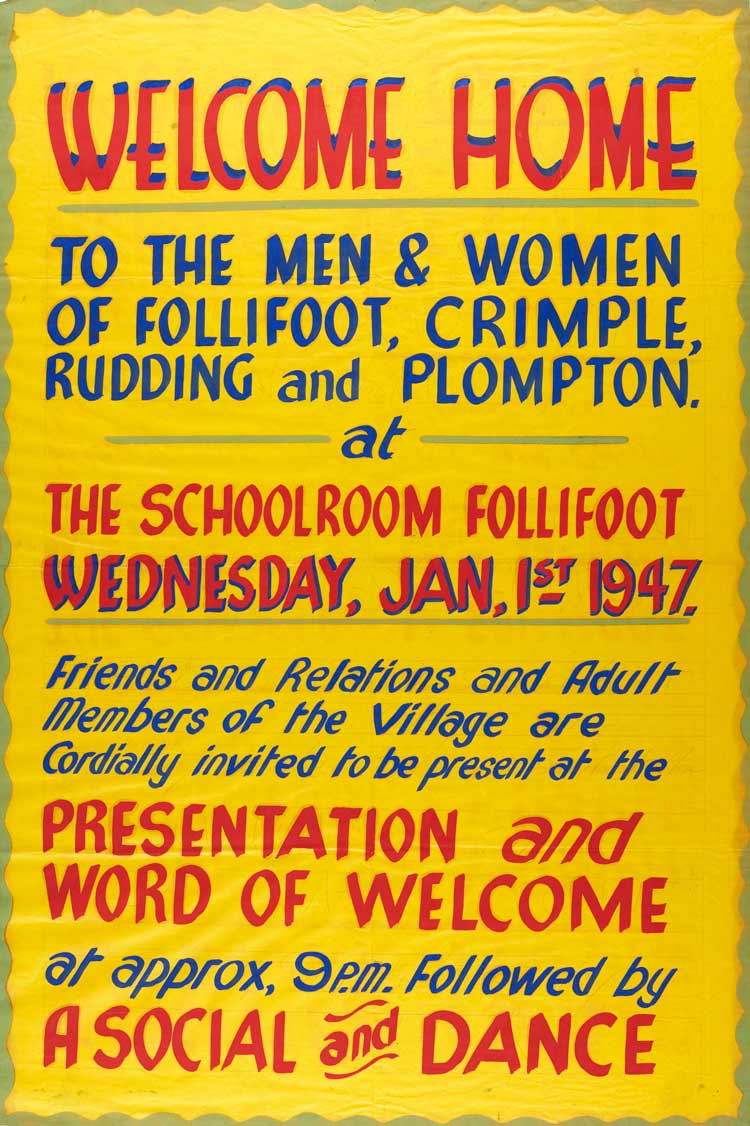
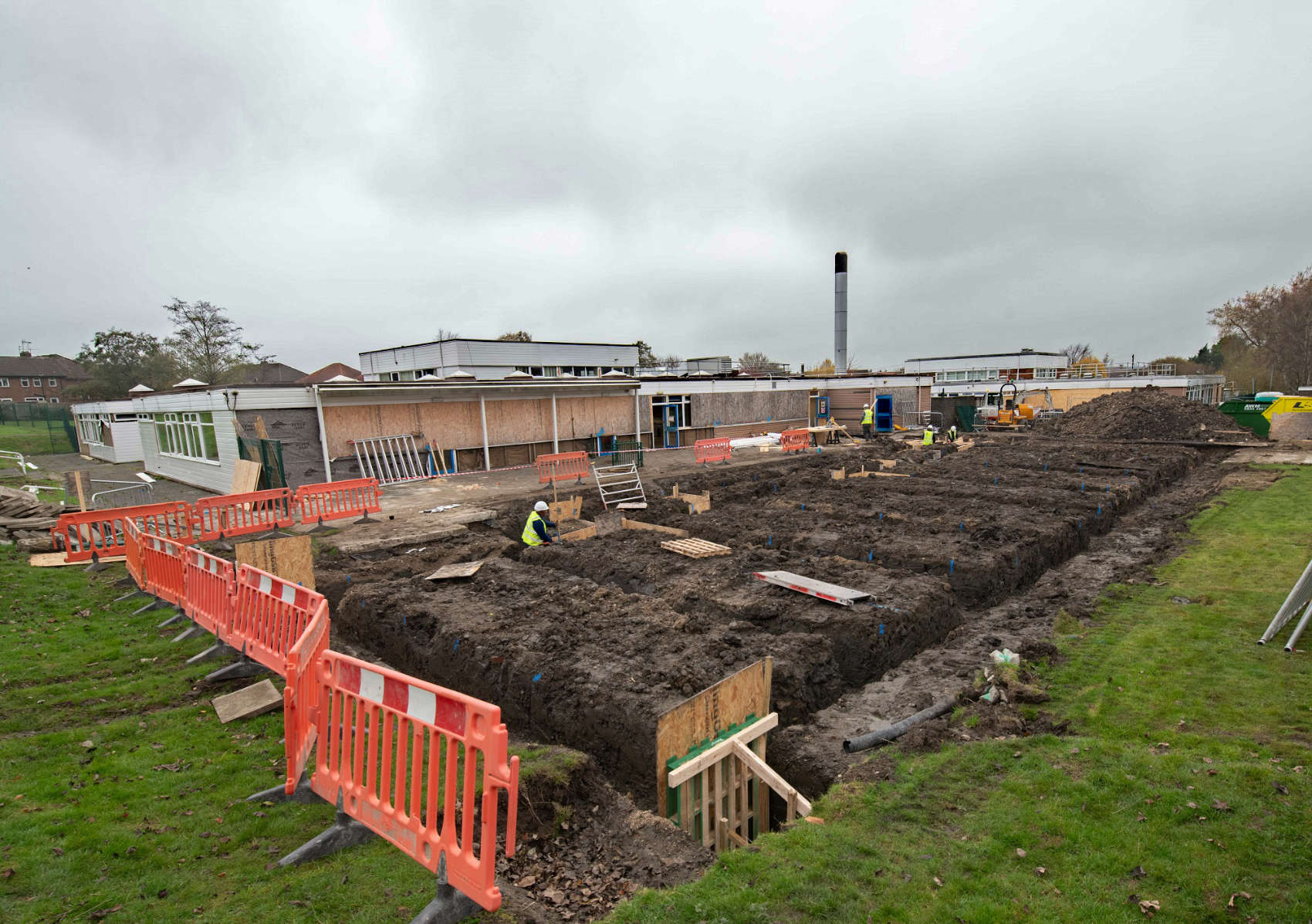
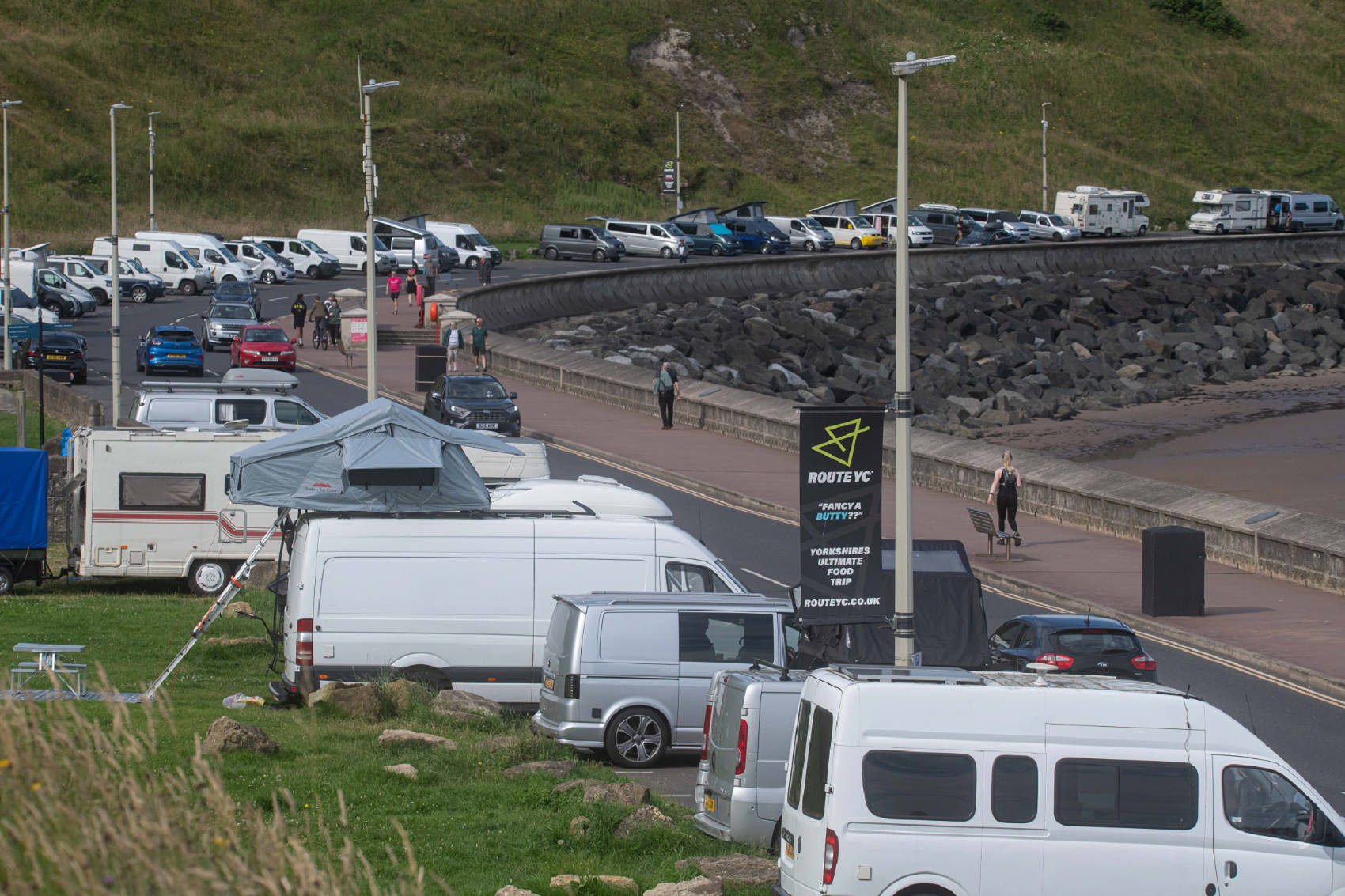

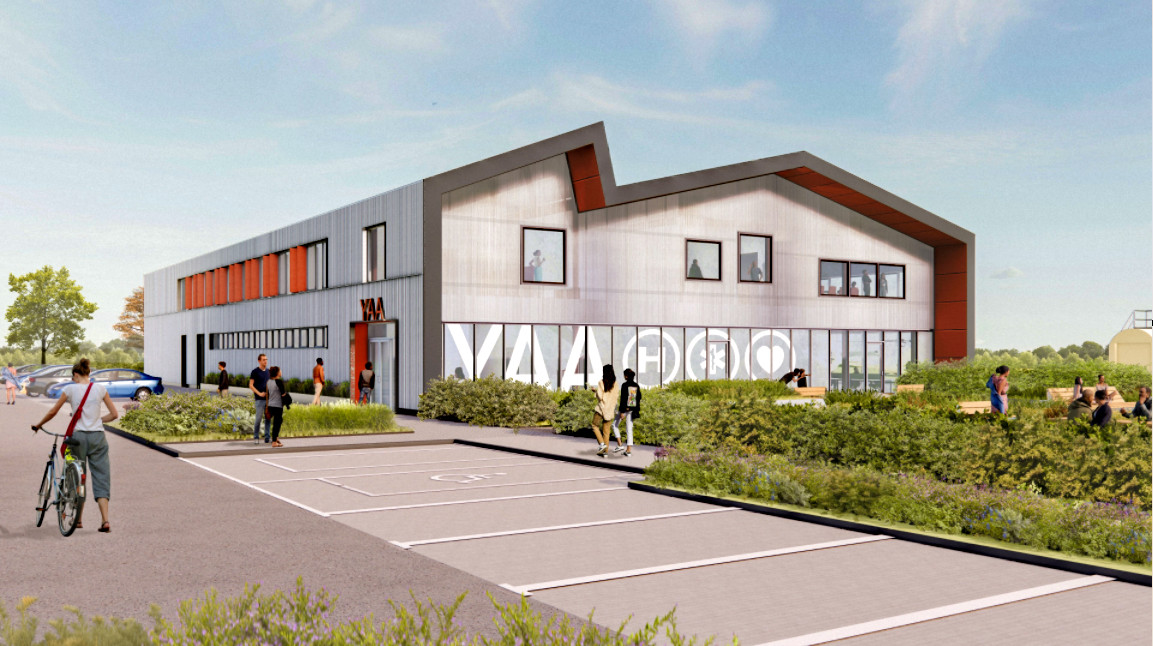
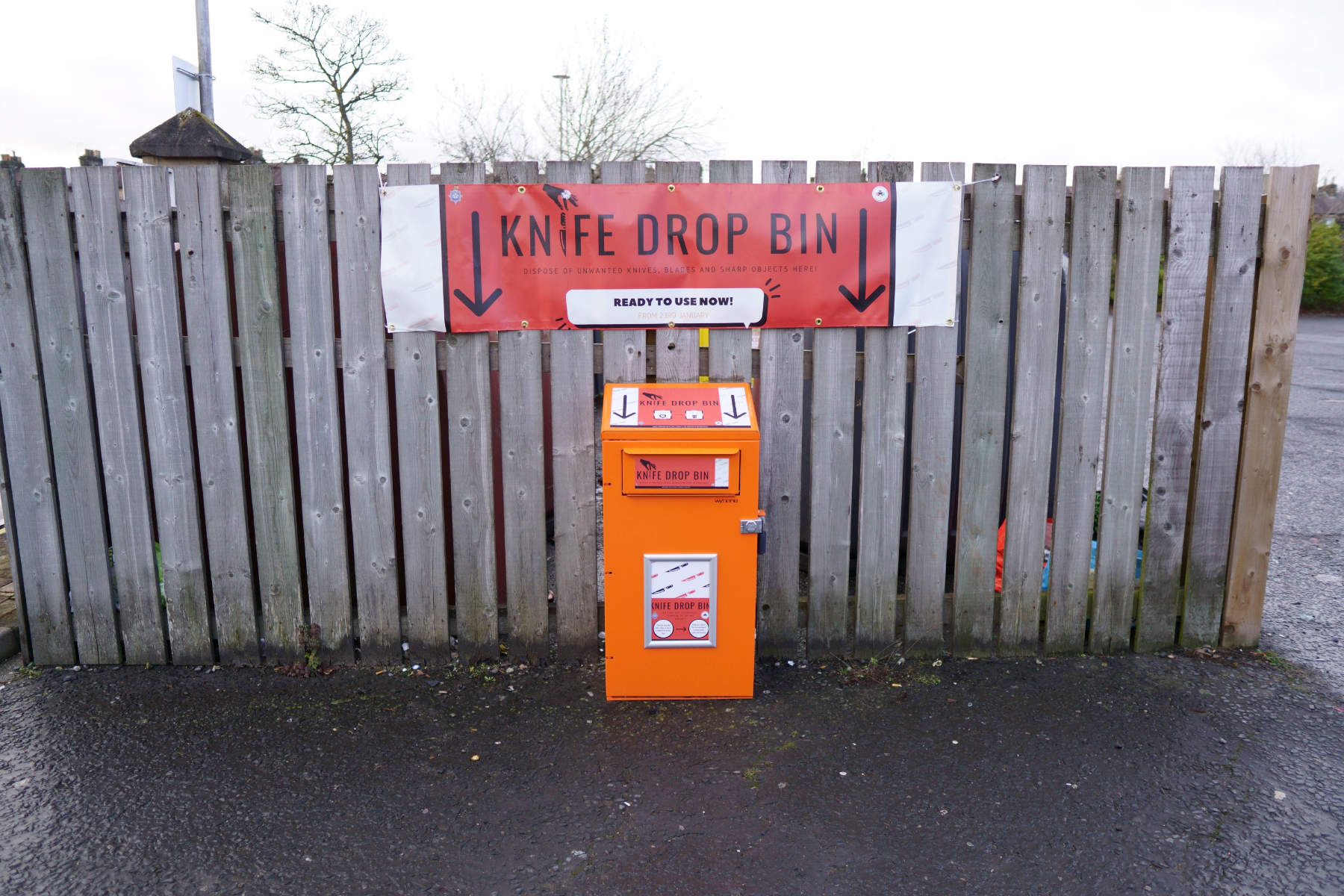

http://www.victory75.co.uk
Union Jack is only used if you live on a boat or ship
It’s a union flag otherwise
I am sure this poster was done by my Father, Edward Hubbard. Where did you get it, or the image? I live in Spain now but was brought up in Follifoot.